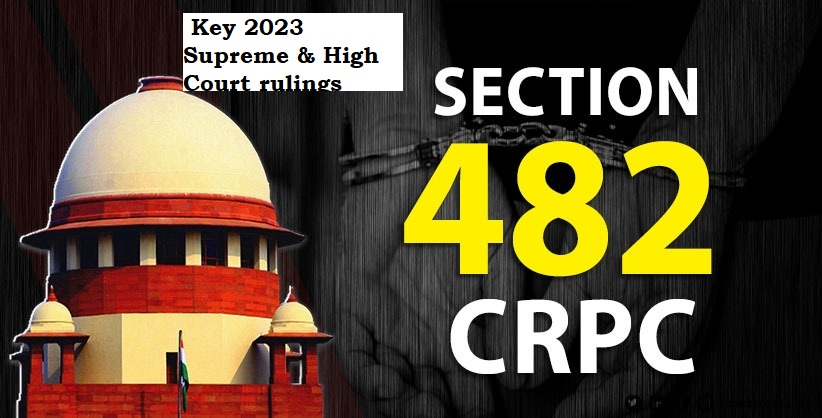


In a significant judicial pronouncement in 2023, the Supreme Court of India rendered a consequential judgment pertaining to Section 482 of the Code of Criminal Procedure, 1973 (CrPC). The case in question, titled "Usha Chakraborty & Anr. Versus State of West Bengal & Anr.," brought to light a nuanced legal issue involving the concealment of the pendency of a civil suit and the subsequent imposition of criminal charges, effectively transforming a civil dispute into a criminal offense.
The central focus of the judgment revolved around the interpretation and application of Section 482 CrPC, a provision vested with inherent powers of the High Court to prevent abuse of the judicial process and secure the ends of justice. The Supreme Court, in its wisdom, addressed the delicate balance required in such situations where civil and criminal dimensions intertwine.
The facts of the case underscored a scenario where the concealment of the ongoing civil suit led to the initiation of criminal proceedings. The Court, led by the esteemed bench comprising Justices Ajay Rastogi and CT Ravikumar, delved into the crux of the matter, critically examining the interplay between civil and criminal jurisdictions.
The essence of the judicial pronouncement lay in the Court's meticulous analysis of whether the concealment of a civil dispute could legitimately cloak it in the garb of a criminal offense. The Court observed that the mere existence of a civil dispute, even if intentionally concealed, should not ipso facto lead to the automatic conversion of the matter into a criminal one. Such a transformation, the Court argued, would be tantamount to an unwarranted intrusion into the realm of civil litigation.
In reaching this conclusion, the Supreme Court emphasized the importance of maintaining a clear distinction between civil and criminal proceedings. It underscored that the cloak of criminality should not be readily bestowed upon disputes that fundamentally belong to the civil domain. The Court expressed its apprehension that a liberal interpretation allowing the conversion of civil matters into criminal offenses based on mere concealment could lead to the unintended consequence of burdening the criminal justice system with disputes better suited for civil resolution.
Furthermore, the Court delved into the significance of the inherent powers vested in the High Court under Section 482 CrPC. It underscored that these powers were to be exercised judiciously and sparingly, with the overarching objective of preventing abuse of the legal process and upholding the principles of justice. The Court highlighted that the inherent powers should not be invoked as a routine alternative to the regular process of criminal law but rather as a safeguard against manifest injustice.
The case of Usha Chakraborty exemplified the Court's commitment to upholding the sanctity of legal proceedings and ensuring that the criminal justice system is not unduly burdened with matters that primarily pertain to civil disputes. The judgment, with its nuanced reasoning and meticulous analysis, served as a judicial precedent guiding the interpretation and application of Section 482 CrPC in cases involving the concealment of civil suits.
In conclusion, the Supreme Court's pronouncement in the Usha Chakraborty case marked a significant development in the jurisprudence surrounding the interface between civil and criminal proceedings. The Court's emphasis on maintaining a clear distinction, the cautious use of inherent powers, and the prevention of unwarranted criminalization of civil disputes provided clarity and guidance for future legal adjudications in similar contexts.
TAGS: Concealment Judicial process Inherent powers Abuse of process Ends of justice Jurisdiction